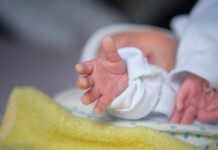
Raleigh’s North Carolina University is currently investigating students and alumni exposed to deadly levels of carcinogens in one of the campus buildings which resulted in the school being forced to shut down last November.
According to WRAL, there were over 150 cancer cases reported by individuals who attended classes at Poe Hall. They were traced back to polychlorinated biphenyls (PCBs), lethal chemicals known to increase those exposed to a higher risk of diseases and cancer.
One of the people affected was Christie Lewis, an alumni who attended the university from 2007 to 2012. She reported having symptoms such as night sweats for a significant amount of time. While still enrolled, she was diagnosed with thyroid cancer, as well as angiosarcoma months later after finding a lump in her neck.
“I was finishing up my finals, and I was going in for a physical at the health center. … I was having night sweats for weeks and weeks before this, and I could not figure out what was happening,” Lewis told Fox News Digital.
“I was having to get up in the middle of night and change clothes completely. And then I would fall asleep. And I had to put a towel down. It honestly took me weeks to even tell my husband about them because I kept on forgetting about it because it was just in the middle of the night,” she added.
NC State University exposes over 150 students to PCBs, causing cancer. pic.twitter.com/QDyWAdV0Oo
— Sabby Sabs (@SabbySabs2) April 2, 2024
Jennifer Walter, an alumni who attended the university between 2004 and 2007, was also diagnosed with thyroid cancer in 2017, along with synovial sarcoma in 2022. She reported that her biggest symptom was fatigue.
The New York Post reported that Poe Hall was constructed in 1971 when PCBs were typically used as building material.
Ben Whitley, an attorney with Raleigh’s Whitley Law Firm, said that his firm is investigating Monsanto, the company that supplied the building materials for Poe Hall.
ABC11 reported last week that the Occupational Safety and Health Administration (OSHA) had taken over the investigation. The university will likely test other buildings for PCBs.
It is currently unknown if those diagnosed with cancer will take legal action against the university.




























